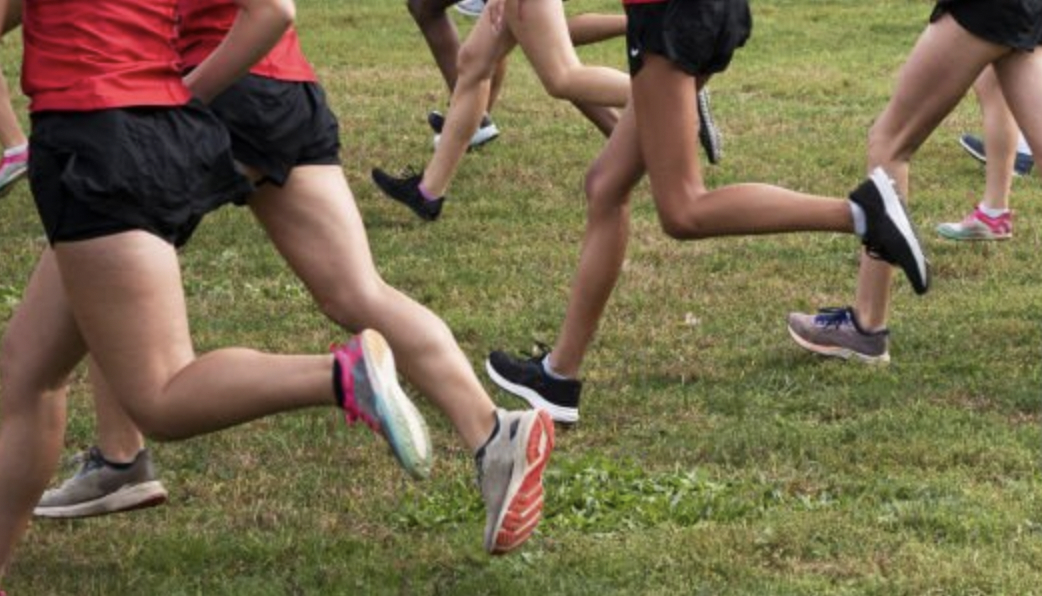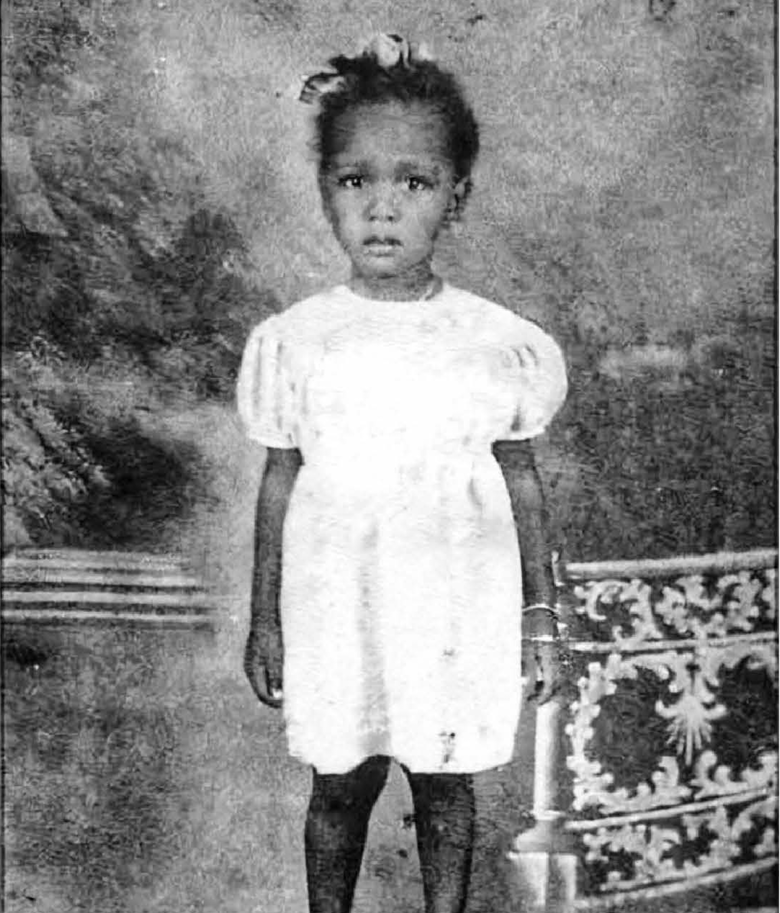There is no such thing as silence in the South. There is always the percussive hum of insects, winged bodies waiting in the weeds for dusk. This sound fills the fissure before Coach Meeks fires the gun, while Joanna leans over the spray-painted line in the crabgrass field. She is sixteen but still as stick-legged and bird-chested as she was at twelve, brushing daily knots from her homeschool-length hair because her mother gave up trying to teach her how to make a braid. The billow of smoke erupts from the pistol’s nose before the crack of the blank reaches her ears. Her hair streams behind her, loose and wild, as she pushes off the line. She believes that it makes her faster.
Run for Jesus, her mother told her before the race, as she always does. But Jesus is a half-naked figure nailed to the crucifix above her mother’s bed, his blank wooden eyes watching to see if Joanna dusts under the lamp, the box of tissues, her mother’s ceramic guardian angel. Joanna does not run for Jesus, even if he knows what it’s like not to tell your own story. No, she runs to be swept up like Elijah, in a gust of wind and fire.
Parents and injured teammates cheer as the runners string out along the chain-link fence. Meeks and DeCicco are running both races together, the boys’ and the girls’, and as the course angles toward the woods behind the school, Joanna falls in line behind Lee. In the woods, their feet pound a trail cushioned by pinestraw, and she tries not to think about his grimace when he pulled away from her, a face that reminded her of her father picking a fish bone from his mouth at the dinner table. He has not met her eyes since.
It is only a matter of time before the girls know. She believes this because in the dark of a Raleigh hotel room last spring, Jenny Hurst and Amanda Silber and Hannah Frenelli had told her which boys the other girls on the team had had sex with. She had only an etymological sense of the difference between a handjob and a blowjob, but she knew better than to reveal this. “Who else?” she had asked instead, feeling the flush of being permitted secret knowledge. Only afterward did she understand they’d told her not to include her, but for the entertainment of probing the extent of her naiveté.
The trail spits Joanna and Lee out at the mile mark, where Coach Meeks reads off seconds: “Five-fifty-one, five-fifty-two—Nice work, Jo!” He’s the only person who has ever given Joanna a nickname, and she loves him for this.
She follows Lee through a gate and onto a road lined with low-slung houses, cracked driveways, satellite dishes, and yellow newspaper boxes on crooked metal necks. There is no wind in the sticky air that moves around her body and tangles her hair. Her shadow runs ahead of her. Lee glances over his shoulder and accelerates, and Joanna opens her stride to match his.
He was new to the cross-country team that season, a senior who started running to get in shape for the military. He’d been running all summer and had hit DeCicco’s five-hundred mile challenge for the boys, just as she completed the three-hundred mile challenge for the girls. They’d both gotten specially printed t-shirts as a prize. “Nice shirt,” he said, the first time she wore hers to practice. On the ride home from their first away meet, he sat down beside her, though boys and girls were supposed to sit on opposite sides of the bus. “We should hang out,” he said. She was so surprised by his attention that she failed to notice it wasn’t a question.
The road loops back toward the high school, and the sun flings Lee’s long blue shadow at her feet. A gap opens slowly between them: one second, two seconds, five.
Meeks waits in the same spot inside the gate, nearly hoarse: “ELEVEN FIFTY-EIGHT! ELEVEN FIFTY-NINE!” Joanna suspects the enthusiasm in his voice is especially for her, though he has no way of knowing what’s really at stake for her. She’s the girls’ number one, but more importantly to Meeks, on pace for a PR. While DeCicco counts places for the team scores, Meeks always preaches that the person to beat is yourself. But she can’t tell Meeks—her mother, anyone—why this race isn’t about the time.
She wills herself to gain on Lee until she is again close enough to smell his sweat, to trace the pale whorl of scalp in the crown of his dark, buzzed hair. She remembers how his hand glanced off her hip at the top of the landing. What he said: Relax. I won’t make you do anything you don’t want to. Only later would she recognize Lee’s statement for what it was: a rewriting in advance of what was about to happen.
They follow a perforated trail of painted arrows around the far side of the high school, past the trailers that serve as extra classrooms, the deserted baseball field. Her head swims. Her lungs and feet begin to burn, but no fire comes for her. She gulps air and heaves it out again. Lee flags, too. His hands flop with each swing of his elbows.
Coach DeCicco waits at the gate to the track. Joanna sees her own squinched face in the mirrored lenses of his sunglasses. He checks his stopwatch and raises his bushy white eyebrows in approval. “Not bad, Joanna! All right, Lee! Finish strong!”
They enter the track at a dead sprint. Joanna hears her name, Lee’s name. The track falls away beneath her. Her mind empties. She becomes breath escaping the body. Muscle and rubber and cotton and bone.
They cross the line together, and someone hands her an index card bearing the red slash of a 1. Joanna takes it and collapses in the chute. She does not see what number Lee gets. She feels a hand on her arm, Meeks pulling her to her feet. “Good race. Keep moving. Arms over your head.” She clasps her hands behind her head and doubles over. Crumbs of recycled tire still stick to her kneecaps. Her mother offers her a paper cup. “Great job, sweetie!”
“Who won?” Joanna asks between gasps.
Her mother frowns. “Sweetheart, there was no one near you.”
A few feet away, Lee leans over a string of brightly colored triangular flags and vomits in the infield.
Jules Fitz Gerald grew up on North Carolina’s Outer Banks, where this story takes place, and now lives in Oregon. Her fiction has recently appeared or is forthcoming in Salamander, A Public Space, Wigleaf, Witness, Southern Humanities Review, and other journals. She is working on several books.




